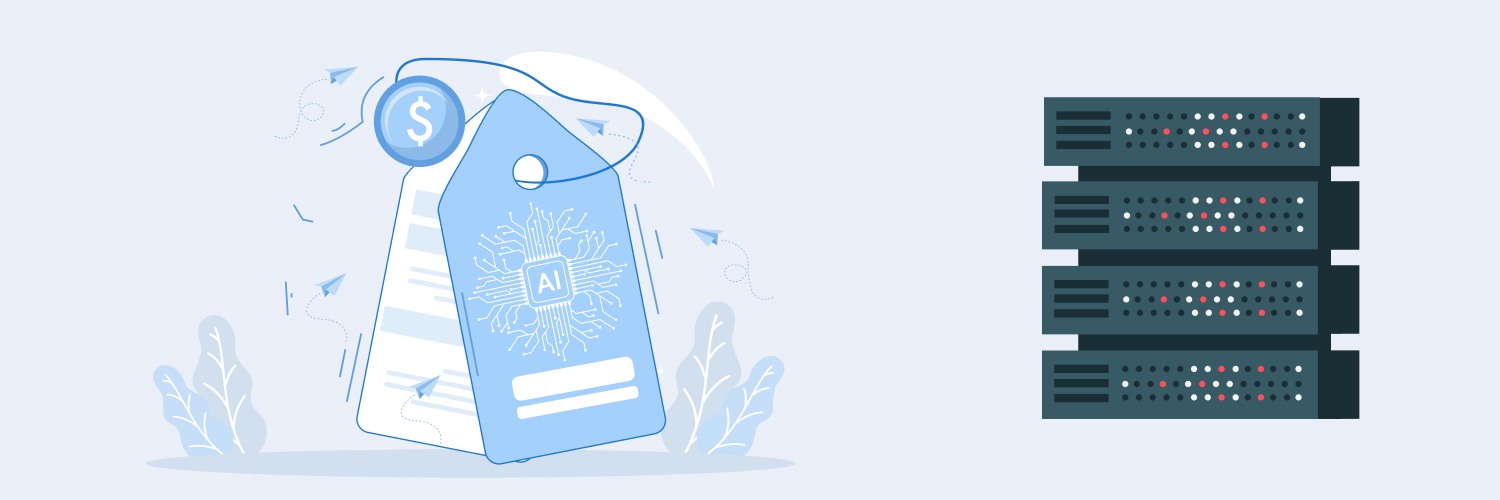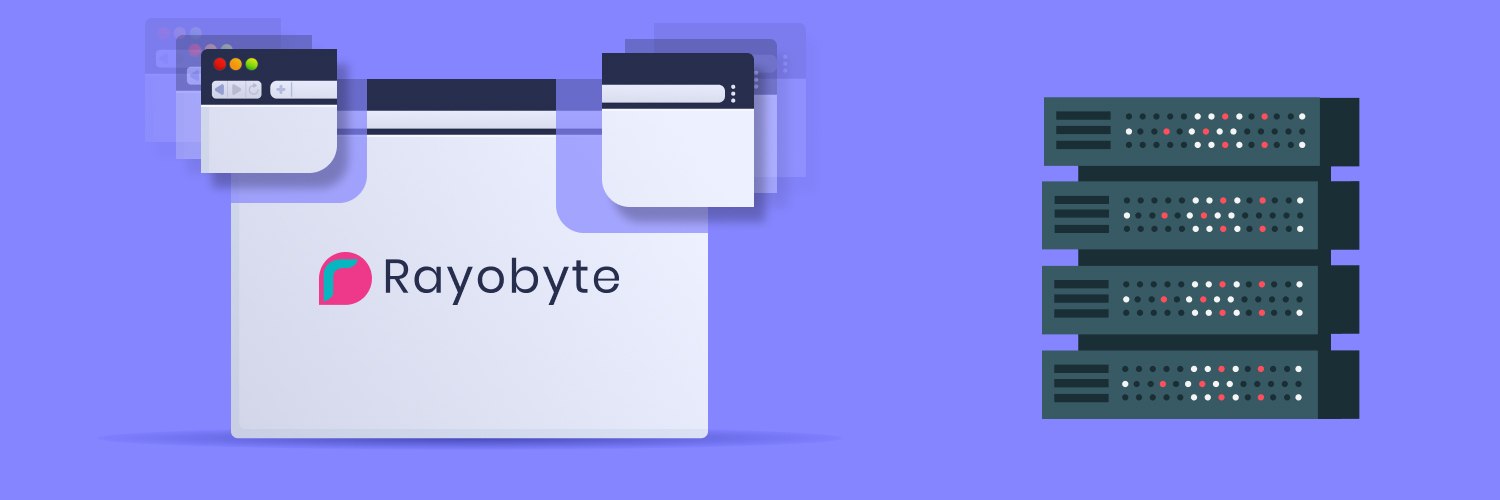The Ultimate Guide To Bypassing A Search Engine Proxy Block (The Top 5 Ways To Prevent Blocked Proxies)
Proxies are an excellent tool to hide from nosy third parties as you scrape the web. They’re meant to replace your unique IP address, which is provided by your Internet service provider, with a different one to mask your identity. However, sometimes proxies won’t work as you expect them to, and there might be many reasons behind that issue.
The truth is that proxies are not the easiest technology to use. In some cases, you need to have a bit of technical knowledge to temper your operating system, software, modem, and browser settings for your proxies to work properly. Yet, because of the nature of proxies, they can still be a tad tricky to master even when you follow your provider’s instructions thoroughly.
For those who want to search the web like the average folk using a proxy IP instead of your own, things might not get that complicated. But if you’re looking to do some bulk scraping through search engines like Google, Yandex, or Bing, you’ll most likely encounter loads of requests that will ultimately end up blocking proxies. Use the following table of contents to find what you can do if you want to learn how to bypass a search engine proxy block.
How to Bypass a Search Engine Proxy Block

The scraping community is no stranger to blocked proxies. In fact, it’s fairly common to find issues when setting requests intervals and URL destinations to start scraping. If you, for example, are trying to use your proxies to buy your favorite sneakers, win an online auction, or buy several tickets for an event at once, you can also face proxy problems.
Circumventing proxy usage rules is possible
Some sites have no problem blocking proxies to stop you in your tracks if you’re trying to do something that’s frowned upon by their admins. However, if you end up finding yourself bombarded by pages that won’t load and have unnecessary captchas and are locked out of your favorite sites, chances are your search engine is to blame.
Has this happened to you? Don’t fret! There’s a light at the end of the blocked proxies tunnel. The remedies are actually similar depending on what proxies you’re using and how you’re taking advantage of them. If you play your cards right, you’ll be able to understand how to proxy a search engine like a pro in no time.
So Your Search Engine’s Blocking Proxies, Now What?

Your favorite search engines have something in common. They strongly prefer that it’s humans and not proxies who conduct all the searches and access their precious data. Most of them have complex defense mechanisms to block automated inquiries and there are several good reasons behind that choice.
Why do search engines like Google block proxies?
Some users might not have the best intentions when using technology to mast their identities when scraping the web. Actually, hackers use bots to attack servers and steal sensitive information or saturate servers to make companies lose revenue. Nevertheless, these protective measures sometimes affect users with good intentions, like you.
If you’re an enterprise proxy user that utilizes this technology to do competitive research and evaluate local search results, you might be familiar with having your automated queries blocked. That’s because Google might have accidentally taken you for a bot. We hear you! There are only a handful of things more annoying than to have Google blocking proxies left and right.
How to Use a Search Engine With a Private Proxy

Privacy is one of the main priorities many enterprise proxy users have today. You’ve probably come across hard-to-decipher privacy policies and shameless data collection from third-party sites. In the worst-case scenario, you’ve been victim to data breaches that lead you to be a bit more careful regarding information safety in your company.
You might remember the Equifax security fail or the Marriot data leakage from back in the day. Thousands of people’s sensitive information was exposed and compromised in each of these scandals. Isn’t that enough reason to be wary even when trusting renowned institutions with your business’s private information?
Some security experts recommend individuals and organizations learn how to proxy a search engine or use virtual private networks, most commonly known as VPNs, to keep their browsing history safe and keep the uncertainty at bay. However, if you keep experiencing blocked proxies, these efforts are useless.
Hiding your identity online like a pro
There are a couple of ways you can hide your identity online. Most search engines prefer that you use their private mode to delete your browsing history and computer details. However, this measure is not effective in deleting the information collected by employers, for example. You can still see what your employees were up to at work even when they browse on private mode.
Private browsing vs. proxy servers
Google Chrome and most of its less popular counterparts have a form of private browsing or Incognito mode they advertise as an anonymous way to search the web. This statement is not entirely true, though. While these sessions might delete information on your browsing history and cookies, they only do so on your computer and not in other places where it might have been stored. That said, private browsing is an excellent tool to hide information from others using your PC, but it will only protect your information to a certain extent.
Proxy servers, on the other hand, act as gateways between you and the World Wide Web. They send your information and request to an external server where the proxy makes the web request for you, gets the response, and sends the data collected back to you. This solution offers plenty of security and management advantages. A proxy server will let you:
- Hide your IP address
- Chance your IP address
- Make it hard to track your activity
- Encrypt web requests
- Control internet usage in your network
- Block compromised or malicious sites
- Avoid some security threats to your network
5 Ways to Prevent Blocked Proxies

Protecting your business’s information is vital in today’s internet landscape. Follow these suggestions on how to bypass a search engine proxy block like a data safety ninja.
1. Use dedicated proxies
This one’s a bit tricky, considering it’s somewhat challenging and expensive to find a trustworthy source of dedicated residential IPs. Yet, if you’re serious about scraping the web without being blocked from the most popular search engines, it’s worth a shot.
Typically, IPs are either assigned by your internet service provider or purchased through your go-to proxy provider. The latter tend to get their proxies from data centers, which are prone to be blocked by loads of sites. That’s why using high-quality dedicated IPs from a proxy provider that won’t oversell them is the way to go.
2. Rotate your proxies
If you’re not willing to spend your hard-earned money on dedicated proxies, getting a batch of proxies to rotate is the next best thing. Otherwise, you won’t be able to do heavy bulk scrapes or large purchases on anti-proxy sites. A good rule of thumb is to gear yourself up with at least:
- 10 proxies for low-end scraping
- 50 proxies for middle-range scraping
- 100+ proxies for high-volume scraping
Using specialized software or a good plug-in will allow you to set up a personalized randomizer and use your proxies at once. This way, your proxies will be harder to detect, and you’ll get more use out of them.
3. Rotate your IP providers
You can keep an eye out for a service that offers you rotating proxies. What does this mean? Your provider will give you a certain number of proxies every couple of hours to prevent repeats from happening and mask your identity more accurately. This will further stop websites from detecting and tracking you.
4. Avoid free or shared proxies
We cannot stress this enough. Besides putting your network at risk of malware attacks, using free or shared proxies will increase your chances of getting caught by search engines and other platforms. These proxy servers offer IPs that are generally overused. If, for example, a proxy has 20 people scraping on it, there’s no way all users will get away with it for too long.
5. Stop using so many search modifiers
Although this measure has less to do with proxy usage, it’s still worth a try if you keep getting blocked. Most search engines have implemented more intuitive search methods within their sites. This means making your average inquiries should be easier than ever. However, as a web scraper, you might be using search modifiers excessively to refine your inquiries, and that typically gives you away.
When search engines detect you’re using modifiers, it raises red flags for them. After a while of repeatedly using this searching method, they’ll most likely block you.
Blocked proxies are annoying, to say the least —especially when you rely on web scraping methods to get relevant data for your business to succeed. However, if you’ve been struggling with search engines blocking proxies you use to send a certain type of request, do not panic! It happens more often than you think, and there are several ways to prevent it from happening.
Following this guide on how to bypass a search engine proxy block is the easiest way to avoid the frustration you get from being flagged. If you’re still struggling with this annoying issue, talk to your proxy provider or keep an eye open for one that works better. Rayobyte can meet your rotating residential proxy needs. Visit us and change the way to scrape the web today!
The information contained within this article, including information posted by official staff, guest-submitted material, message board postings, or other third-party material is presented solely for the purposes of education and furtherance of the knowledge of the reader. All trademarks used in this publication are hereby acknowledged as the property of their respective owners.




